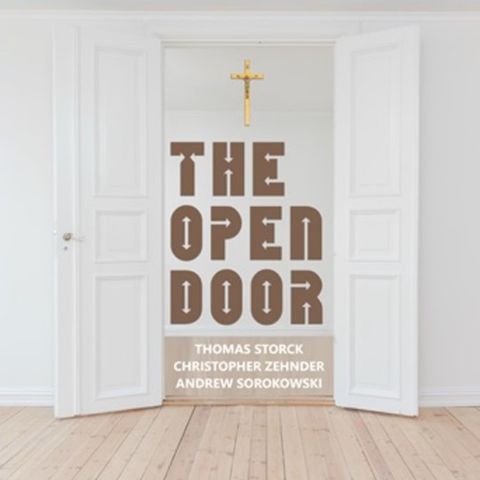WCAT Radio The Open Door (October 20, 2017)
Jan 13, 2019 ·
1h 57s

Download and listen anywhere
Download your favorite episodes and enjoy them, wherever you are! Sign up or log in now to access offline listening.
Description
This week's discussion, drawing on Catholic social teaching, will explore the "Civic Engagement" plank of the American Solidarity Party. But...there will be a prelude. Years ago there was a cartoon...
show more
This week's discussion, drawing on Catholic social teaching, will explore the "Civic Engagement" plank of the American Solidarity Party. But...there will be a prelude. Years ago there was a cartoon strip, "There Oughta Be a Law." See this link:
paranoiastrikesdeep.blogspot.com/2012/06/there-oughta-be-law.html Jun 28, 2012 - “There Oughta Be a Law” was a newspaper panel strip.
But what sort of law? Let's begin, then, by discussing an example of a law that the Solidarity Party might propose on a state level and on a national level. We might also consider an example of a law that the Solidarity Party might repeal on a state level and on a national level.
Then let's take a close look the platform plank for the day...
Civic Engagement: The American Solidarity Party calls for the reform of electoral laws at every level of government in order to encourage voter participation by all citizens. We believe that the current system disenfranchises third parties and those they represent through systemic legal and procedural measures that favor and uphold a two-party system.
We, therefore, support:
Alternative methods of voting in primaries and elections in order to make governing bodies more accurately reflect broad candidate choice.These include, but are not limited to: approval voting, range voting, ranked choice voting, and instant run-offs.
Reform of the redistricting process through independent and impartial agencies.
State exploration of automatic voter registration for all citizens upon naturalization or coming of age, with conscience protections for those who choose to opt out.
Elimination of restrictive voter-registration and voter identification laws that suppress voter turnout, particularly among the poor and minority groups.
Easy access to impartial and fact-based information on candidates and ballot measures in print, online and through broadcast media.
Measures to reduce the influence of money in politics, including waiting periods before public servants are permitted to accept employment in private lobbying firms, requirements for offering equal time to all candidates as a condition of broadcast licenses, and other constitutional means of amplifying views that do not tend to attract support from wealthy donors.
show less
paranoiastrikesdeep.blogspot.com/2012/06/there-oughta-be-law.html Jun 28, 2012 - “There Oughta Be a Law” was a newspaper panel strip.
But what sort of law? Let's begin, then, by discussing an example of a law that the Solidarity Party might propose on a state level and on a national level. We might also consider an example of a law that the Solidarity Party might repeal on a state level and on a national level.
Then let's take a close look the platform plank for the day...
Civic Engagement: The American Solidarity Party calls for the reform of electoral laws at every level of government in order to encourage voter participation by all citizens. We believe that the current system disenfranchises third parties and those they represent through systemic legal and procedural measures that favor and uphold a two-party system.
We, therefore, support:
Alternative methods of voting in primaries and elections in order to make governing bodies more accurately reflect broad candidate choice.These include, but are not limited to: approval voting, range voting, ranked choice voting, and instant run-offs.
Reform of the redistricting process through independent and impartial agencies.
State exploration of automatic voter registration for all citizens upon naturalization or coming of age, with conscience protections for those who choose to opt out.
Elimination of restrictive voter-registration and voter identification laws that suppress voter turnout, particularly among the poor and minority groups.
Easy access to impartial and fact-based information on candidates and ballot measures in print, online and through broadcast media.
Measures to reduce the influence of money in politics, including waiting periods before public servants are permitted to accept employment in private lobbying firms, requirements for offering equal time to all candidates as a condition of broadcast licenses, and other constitutional means of amplifying views that do not tend to attract support from wealthy donors.
Information
| Author | WCAT Radio |
| Organization | WCAT Radio |
| Website | - |
| Tags |
Copyright 2024 - Spreaker Inc. an iHeartMedia Company
